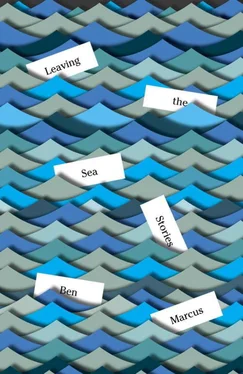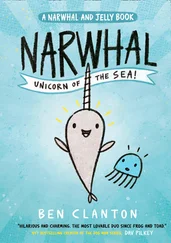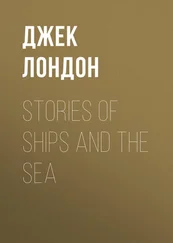Fuck it. This would get worked out. He said hello and welcome, making the obligatory referential comment about how ridiculously weird it was to be studying writing on a cruise ship, of all places, which no one laughed or smiled at or even acknowledged facially. Perhaps they didn’t know they were at sea. Was there a certain percentage of people at sea who lacked the knowledge that they were at sea?
Really, anyway, Fleming insisted to them, location shouldn’t matter, because this was serious work they were doing, and this was a serious class, to be done anywhere. If possible, they should, you know, forget about the outside world when they were in here and focus on literature.
Their faces were grave and their eyes, already, seemed to be closing.
So, great. His first lesson to them was to ignore the outside world, which he’d just said had nothing to do with real literature. Splendid advice for writers. And it would be fairly easy to follow inside this airless kill box. This was going very well.
They went around the room and said their names, along with some other data he’d requested—favorite books and writers, past classes taken—which they surrendered with quiet hostility, as if they were corpses who had been fed some rejuvenating pulp that would allow them to release a few more sentences before dying again. You brought me back to life for this ? their bodies seemed to say.
The first story they considered was by Timothy, who had an amazing beard. This didn’t disguise the fact that he was no older than twenty-two. Even if it had been a white beard, even had he walked with a cane and maybe pushed along an IV bag on a gurney—like a child playing an old person in the theater—this boy would look young. Yet somehow he had raised a beard of Bunyan density, and the sight of it reproached anything facial Fleming, maybe thirty years the boy’s senior, had ever attempted.
In Timothy’s story an old man sat on a bed and thought back on his life, which featured some activities he regretted, which he would now tell us about in great length. The end.
A woman named Shay started the critique. She shrugged, said she had trouble believing it, and then paused, failing to elaborate.
That did rather sum things up, Fleming thought. Sort of a brave piece of thinking. Maybe true of almost everything created ever: paintings, books, houses, bridges, certain people. None of them are finally believable, when you really think about it. But, well, there they are. Whole schools of philosophy had fought with that one. Looking at Shay, and the confidence she projected, it was clear that belief was her holy grail and she probably rarely found it. She didn’t believe this, she didn’t believe that, it was all so unbelievable. Many years from now Shay would be dying somewhere nonspecific—Fleming’s imagination couldn’t piece together a good deathbed location—and she would declare that she couldn’t believe it.
Did Shay want to suggest anything Timothy could do to make his story more believable? Fleming asked.
“No. I don’t believe in meddling with other people’s art. No way. And I don’t want anyone to meddle with mine.”
Well put, and good on you, he thought, but then what the fuck are you doing here?
He almost said, Okay, so what do other people think of that? The classic workshop whirlpool everyone might happily drown in for a while. Let’s all go down together! But he stopped himself, because that would be like asking, Who else thinks that we have no purpose here? And even if he verged toward the affirmative himself, he’d better pull this ship back to dock pretty fast.
How come a ship metaphor, when actually on board a ship, seemed embarrassing, even when kept to himself, whereas on land it was perfectly acceptable?
Relying on experience, Fleming waited. It was about the only trick he had when he was in the gladiator pit. Ride out the silence. Stare the fuckers down. Someone else in the room was likely to find the pause unbearable before he did. And, sure enough, up stepped Timothy’s defender, Rory. Cheerful, permissive, simple, friendly, handsome, healthy, well adjusted, insane: someone who should never have become a writer.
Rory thought the story was great. So great! That man, on that bed. Wow. Rory could just see and feel him there. The whole thing was so real and he wouldn’t change a thing. This was perfect stuff. It almost could have been a movie! Rory smiled, and it was clear that no one had ever disagreed with him, ever. Or, more likely, people had disagreed with Rory but he wasn’t aware of it. The bliss it must be to be Rory.
So the poles had been set, approval and dismissal of Timothy’s story, and now it was Fleming’s duty to string critical latticework between them, ricocheting between praise and criticism until everyone had gotten their money’s worth. Later, Timothy could pick from this web of provocative suggestion as he got going with his revision.
Slowly the workshop roles emerged. There were the miniaturists, who wanted to look at a certain line on page 5 and wonder if maybe it shouldn’t be airlifted earlier, which might seismically alter the story and bring the whole thing scarily to life. Mightn’t it? There was the person who said that the story really began halfway down page 2. Apparently these people were everywhere, even on boats. The your story starts here people. What about saying that the story begins right after it ends, right here, on a page you haven’t written yet, and then throw a balled-up piece of paper at the writer? There was a young woman named Britt who felt the story should be switched from first person to third. First person, to her, at least in this story, allowed confessional overtones that seemed to let too much self-pity creep into the story, which defeated a reader’s ability to care for this man. If he feels sorry for himself, she explained, it makes it harder for us to. Not bad, Britt, Fleming thought, keeping his face neutral. A strange dose of reason on the high seas. But her comment was ignored and then there was the person who confessed that this story really wasn’t his thing so it wasn’t even fair for him to try to evaluate it. He’d better pass. He wanted to pose this response as an apology, like saying he was sorry, he didn’t read French, so what could he do? I’m sorry, man, your shit isn’t my thing.
Ah, one of those guys. The one from last semester had been named Sean. This one, the cruise version, was Carl. Exempted from value exchanges because of his immensely idiosyncratic place in this world. Not really his world, just a world he is grumpily visiting. That’s what Carl should have said: I’m sorry, I have to pass, I’m not actually a human being. Whatever Carl’s real thing was would be a closely guarded secret until he turned in his own story, and everyone—or so it usually went—once they saw it, would strain to detect the slightest difference between Carl’s writing and the work of the peers he’d spent so much effort distancing himself from.
Fleming jumped into the discussion and said that Timothy was brave to write about something so distant from his life, and for this he should be commended. Brave or silly, though, he wondered? Often it was hard to know the difference. To the students he said this was powerful material. A man who will die soon, wondering what went wrong in his life. And he’s alone. His mistakes have left him alone. He’s done this to himself, it’s his fault, there’s no one else to blame, and yet we somehow, potentially, feel for him. It’s really tragic. Cheers, really, to Timothy, because this stuff is big. But could the story maybe, who knows, use a scene? Sometimes an actual scene carries feeling really well, at least if that’s the goal here? Possibly not. Possibly not. Expository narrative can be really, important pause, interesting. Can anyone think of examples of this?
Читать дальше












